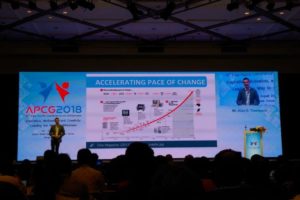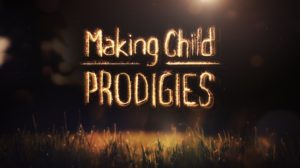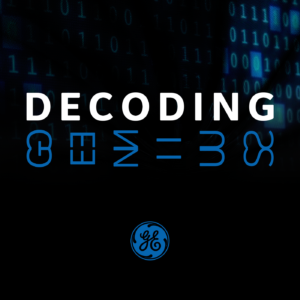Read the original article about Ad Astra
The future is now:
Gifted education beyond 2020
Alan D. Thompson, ACC
Gifted Coach
View original article (Mensa – PDF)
There are a few schools with an older mindset from the industrial age, the mentality that says ‘let’s churn out these kids like a learning factory’. But this is the creative age: there’s no room for factory children any more. What the world is crying out for is children who are self-driven.
Alan D. Thompson (interview with The Australian)
| School name | Dara | Ad Astra | Davidson Academy | Mensa Gymnázium |
|---|---|---|---|---|
| Location | Adelaide, Australia | California, USA | Nevada, USA | Prague, Czechia |
| ‘Grades’ | G1-6 | N/A (G2-G8) | N/A | G6-G13 |
| Established | 2016 | 2014 | 2006 | 1993 |
| IQ required | IQ≥130 | Private intake | IQ≥145 | IQ≥130 |
| Students | 30 | 41 | 159 | 200 |
| Staff | 6 | 6 | 11 | 40 |
| Notes | Australia’s first gifted school. Founded by Flinders University PhD gifted education students. |
Founded by Elon Musk, with teachers recruited from Mirman gifted school. | International gold- standard. Families have relocated from Australia to attend. | Mensa’s only gifted school in the world. Average teacher age/gender is 34-year-old, male. |
In his acclaimed talk at The World Gifted Conference in Sydney this year, Mark Scott AO (formerly the managing director of Australia’s ABC, now the Secretary of the NSW Department of Education) spoke about ‘The promise of potential’:
The five-year-olds who started kindergarten this year [in 2017] will be at university in 2030 and will spend most of their working lives in the second half of the 21st century. It’s always been the case that our schools hold the future within their classrooms, but today’s education systems need to set the foundations for these young children to thrive in life and work in 2050 and perhaps through to 2090.
While many schools are happy to wax lyrical about their modern curriculum and environment, it’s clear that the number of Australian schools actually preparing their students to live in the year 2090 is close to zero.
The gifted population
Intellectually gifted children require completely different educational provisions from the norm, with a wide body of research from the last few decades outlining specific steps that should be made available to these children. Internationally, there are now several schools that have been established to provide for this special needs population.
The future is now
Elon Musk (PayPal, SpaceX, Tesla Inc, Hyperloop, SolarCity, The Boring Company, Neuralink) is well equipped to design and develop the future of gifted education. And yes, it’s easier to create this future if you have a few billion dollars! His new gifted school is housed on the SpaceX campus in California. The school is called ‘Ad Astra’ which means ‘to the stars’ in Latin. It hosts 40 students ‘mostly…identified as gifted or highly gifted’, currently aged 7-14.
The kids really love going to [Ad Astra] school…they actually think vacations are too long. They want to go back to school.
Ad Astra’s co-founder is Joshua Dahn. Josh has extensive specialist education experience, including time teaching at the Mirman School for Highly Gifted Children on Mulholland Drive in California. Ad Astra is a fantastic model for the future of gifted education. It is notably different to any other school, including older gifted schools (Mirman was founded in the 1960s). Let’s take a look at how Elon, Josh and the team are designing the future of gifted education.
Different admissions
Ad Astra’s admissions process is radical (compared to other schools). Assuming a basic level of literacy and numeracy, and rather than just an interview with documentation, there is a range of futuristic projects for the potential students to undertake. These include thinking about interplanetary ethics and design, as well as ‘big thinking’ closer to home. Initial admissions are from more than 100 children moving to 70 applications, with just 10-12 of these accepted.
Different acceleration
I can’t believe we’re still talking about acceleration in 2017, a century after Hollingworth’s research endorsed acceleration as a necessity for the gifted population. Ad Astra in particular doesn’t have the concept of grade levels (Grade 1, Grade 2, etc.). Meeting regulator requirements for curriculum matching seems to be far simpler to do in the US than in Australia. Instead, children work at their own ability level. All age groups are mixed at different times of the school day. Acceleration is ‘baked in’ to the future of gifted education.
Different homework
Ad Astra doesn’t have homework worksheets. Josh says:
Whether it’s shipping rights in the Arctic or we’re talking about AI agents or the lake problem, the idea is that you take it home and discuss it with your family and then bring that back in…
If we give the kids meaningful work to do [at school], I [think they should also] have meaningful things to do at home. Conversations with parents, thinking through problems, coming up with six different models for your next robot.
More child-driven
The students drive ‘at least half’ of the master plan. This includes trading in their own currency (the ‘Astra’) and being able to opt-out of subjects that don’t interest them. Elon says:
You know, because some people love English, or languages. Some people love math. Some people love music. And different abilities, different times. It makes more sense to cater the education to match their aptitudes and abilities.
Less STEM
If you’re patting yourself on the back because your school prioritises STEM—science, technology, engineering, and maths—you’re many decades too late. Mark Scott’s talk also included a reference to a NSW Royal Commission recommending increased STEM in Australian schools—in 1903—nearly 120 years ago! The future of gifted education assumes integrated artificial intelligence, so is more focused on the human side of life. It includes abstract reasoning, strategy, ethics, decision-making, and cooperation.
Less languages
Some Australian state education departments have recently enforced mandatory second language teaching (for example, Mandarin Chinese, Spanish, French) in classrooms. Second languages are not taught at Ad Astra. Yes, learning an additional language has been shown to be beneficial in supporting a child’s brain development and understanding of other cultures. Elon’s involvement in Neuralink—an American neurotechnology company developing implantable brain-computer interfaces—gives some indication of why learning languages is part of the past, not part of the future.
Less handwriting
Parents of gifted lefties have known this for a while…handwriting takes time, is messy, and can be the cause of a lot of stress! Josh says:
I think that it’s important that they spend most of their [writing] time typing papers [instead]. They’re too slow to handwrite by the way. They take to computers immediately.
Less screen time
Embedded in a 100% tech-oriented organisation, it’s perhaps surprising to find that devices don’t play a huge role in school life at Ad Astra. Computers feature for just over an hour per day, though they have access to a device more frequently than this. Hardware is Mac computers, not tablets. Software includes Google Classroom (https://classroom.google.com), Khan Academy (https://www.khanacademy.org/library), Code Academy (https://www.codecademy.com/), and others. Josh says:
You can’t just put kids on EdX all day or just have them go through sort of big history. They want to interact with each other. So finding that balance between giving kids the ability to really dig deeply into an interest using the best technology that exists, but also, some of the best projects we create cost no money and are just pieces of paper. Because kids in this age have that imagination. It’s important to leverage it in the right way and I’m always worried about screen time with kids.
What does it say about the next stage of education when arguably the greatest futurist mind has reduced the focus on STEM, completely removed the focus on iPhones and tablets, and replaced it with self-driven, cooperative learning, underpinned by ethics discussions and affective development?
A May, 2020 followup to this article can be found here.
Bright (Alan’s book for parents) and People like me (Alan’s book for young gifted children) are both available online, and at Elon’s school!
Download Ad Astra admissions projects from previous years
- The Lake Conundrum.mp4
- The Lake Returns Conundrum.mp4
- The Blue Comet Conundrum.mp4
- The Treasure Conundrum.mp4
- The Fox Conundrum.mp4
- The Chocolate Conundrum.mp4
- The Pizza Conundrum.mp4
- The Martian Conundrum.mp4
- The Alien Conundrum.mp4
- The President Conundrum.mp4
- The Dinosaur Conundrum.mp4
- The Flying Bike Conundrum.mp4
- The Airport Conundrum.mp4
- The Neighbor Conundrum.mp4
2020
- Draco (ethics, priorities, decisions)
- Martians (personality, interplanetary travel, priorities)
- NPS (economics, priorities, ethics, spending, distribution)
- To the Stars (project management, interp. travel, priorities)
- WXYZ (fishing, sustainability, ethics, priorities, decisions)
2019
- Moonshot (economics, priorities, ethics, distribution)
- Goldilocks (interplanetary travel, priorities, safety)
- The Eleventh Painting (economics, priorities, ethics)
- The Lake (ethics, priorities, decisions)
References, Further Reading, and How to Cite
Alan’s interview with The Australian (2017) is available at https://lifearchitect.ai/different-path-to-adulthood/
Mark Scott’s (2017) full transcript of ‘The promise of potential’ is available online at http://www.dec.nsw.gov.au/about-us/key-people/mark-scott-s-update/the-promise-of-potential/
Leta Hollingworth’s research is summarised by Linda Silverman (1990) at http://www.positivedisintegration.com/Silverman1990.pdf
Alan has summarised Ad Astra (2017) at: https://lifearchitect.ai/ad-astra/
Alan has provided the full transcript of Joshua Dahn’s interview (2016) with Peter Diamandis at https://lifearchitect.ai/ad-astra-transcript/
June 2020: The new irrelevance of intelligence – Download original article (Mensa – PDF)
Astra Nova: an online school available worldwide
July 2020: The Ad Astra school has moved out of SpaceX, and has become Astra Nova. This new school iteration is available for children aged 9-13yo, with online and international options.
Find out more about Astra Nova School.
Buy your own copy of Bright, Alan’s book for parents, originally available to parents at Elon’s school.
Synthesis School: an online, supplemental program available worldwide
July 2020: The Ad Astra school has moved out of SpaceX. A class from the original school (‘Synthesis’) is available for children aged 8-14yo, with online and international options. Current students are from North America, the Caribbean, India, Australia, UK, Europe, UAE, Japan, and Africa.
Find out more about Synthesis School.
Buy your own copy of People like me, Alan’s book for young gifted children, originally available to parents at Elon’s school.
Dr Alan D. Thompson is a consultant to gifted families, the former chair of Mensa International’s gifted families, and the author of several books on high ability and personal development. He became a member of the IEEE in 2007, and a Fellow of the Institute of Coaching at Harvard Medical School in 2017. His research was also recently cited in the Department of Education analysis of gifted education as part of the High Potential policy. Read more…







